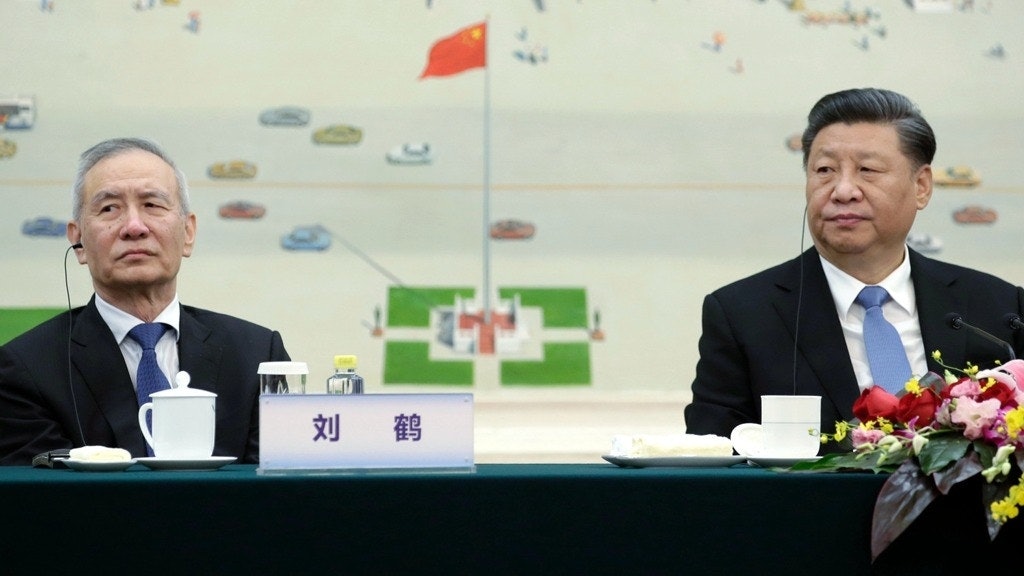Chinese top leader Xi Jinping met in Beijing on November 22nd with prominent Americans attending the 2019 Bloomberg New Economy Forum, including former US Secretary of State Henry Kissinger and former US Treasury Secretary Paul Hank Paulson, former White House chief economic adviser Gary Cohen and Bloomberg chairman Peter Grauer and others. During the meeting, Xi Jinping expressed his views on the first phase of the China-US trade agreement negotiations.
Kissinger is an external think tank of the Donald Trump government. The 96-year-old politician has repeatedly advised US rulings since Richard Nixon, such as proposing Trump to strengthen relations with Russia and respond to the challenges of China’s rise. Of course, for China-US relations, Kissinger’s proposals mostly emphasize the cooperation between the two countries and strengthen mutual trust, so as to reduce the risk of confrontation between the two countries at the strategic and military levels. On November 22nd, he expressed this concern again at the Bloomberg New Economic Forum in Beijing, and the unresolved tariff trade war between China and the United States aggravated his concern.
Cohen was an economic adviser when Trump first came to power. He was a moderate and pragmatic faction. He later chose to resign because he opposed Trump’s tax on steel. He also opposed the use of tariffs to pressure China to change its economic and trade policies. Paulson also opposed the tariff trade war. The Paulson Foundation he founded is also playing a lobbying role in China-US relations.
According to a report by Bloomberg and Reuters on November 22, when Xi Jinping met with Kissinger and Paulson, he mentioned that China hopes to advance the first phase of trade agreements with the United States on the basis of mutual respect and equality. This trade war is not provoked by China. China does not want to fight, does not want to fight, and is not afraid to fight. He said: “There must be a counterattack when necessary, but we are still actively fighting to fight.”
This is China’s position since the beginning of the trade war. At this time, Xi Jinping once again emphasized this position and can reflect China’s “unchanged.” In contrast, the change in the position of the Trump administration. From the initial comprehensive and perfect trade agreement, to the agricultural agreement that prompted China to buy more American agricultural products, and then to the subsequent phased trade negotiations, Trump has been adjusting its trade war objectives to serve its own internal affairs and private interest. The goal of China has not changed, and that is to end the trade war. China’s demands have not changed. That is to let the United States that initiated the trade war cancel the tariffs already imposed.
In order to force China to make greater concessions, the United States even did not hesitate to put pressure on China in the second and third stages of negotiations, such as intellectual property theft, compulsory technology transfer and China’s industrial policy. This also makes the first stage of trade negotiations “load-bearing”, which is difficult to achieve in a short period of time. On November 20, when Trump visited Apple’s new factory in Texas, he pointed out that China’s efforts to reach a US-China trade agreement were not positive.
But for now, it is unlikely that the parties will finalize the text in November and December. More voices suggest that the first phase of the trade agreement may be delayed until January 2020.
Before Xi Jinping met with these Americans, the US “Wall Street Journal” quoted sources as saying that China has invited the Wright Heze team to visit Beijing again to launch a new round of face-to-face negotiations.
Xi Jinping mentioned that he is full of confidence in China’s development. He said: “China’s economic development has great resilience, potential and room for maneuver. The long-term positive trend of the economy will not change. China will adhere to the new development concept, promote the high-quality development of the economy, and continue to promote a higher level of opening up to the world. Economic growth brings more opportunities.”
Georgieva took over the IMF in October and is considered a female politician in the Washington Circle who is as powerful as Nancy Pelosi. After she took charge of the IMF, the IMF has repeatedly issued warnings on China-US trade wars. In October, the IMF said that theChina-US trade war has dragged down the global economy in 2019, and the growth rate has fallen to the slowest level in 10 years. By 2020, announced tariff measures will reduce global economic output by 0.8%.
In addition, Xi Jinping’s statement on the first stage of trade negotiations also coincides with the adoption of the Hong Kong Human Rights and Democracy Act by the two houses of the US Congress. Trump is also expected to sign the bill. However, judging from the latest attitude of Xi Jinping and his aides, whether or not Americans confuse trade with Hong Kong issues, China always pays attention to cutting. Although the bill has an impact on China-US relations, it will not affect the first stage of trade negotiations.












